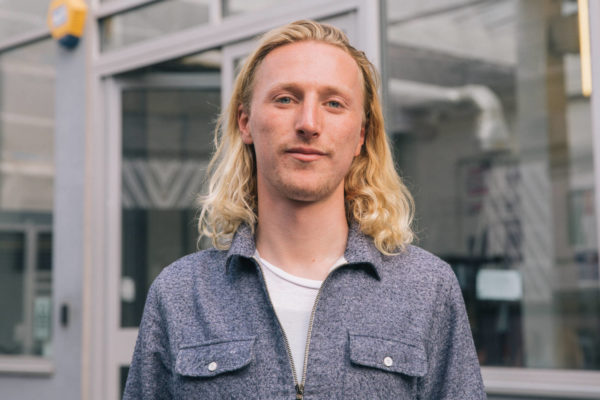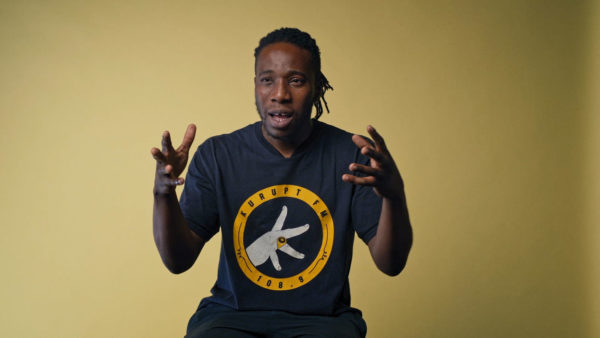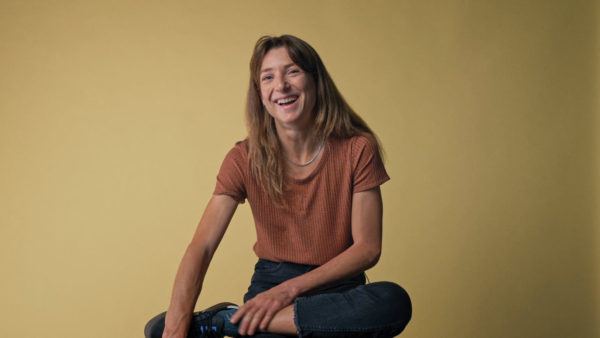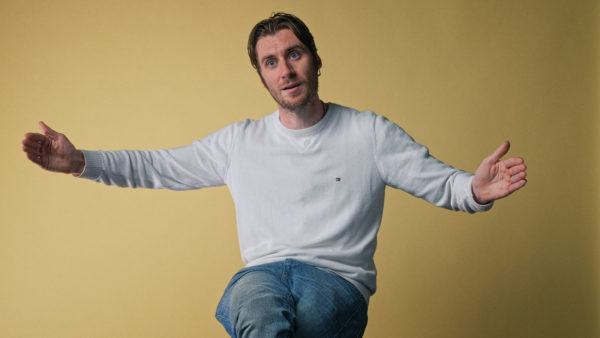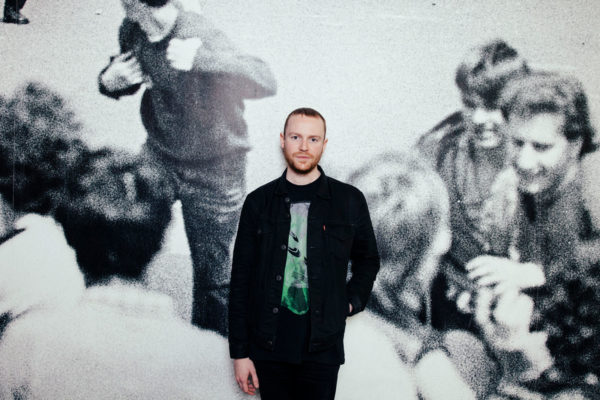1.07 Work in Progress
Planning & Prep with Jordy
We check in with WonderVisions winner Jordy Walker.
Jordan – or ‘Jordy the Geordie’, as his friends call him – is the aspiring 24-year-old filmmaker who won VICE Film School’s WonderVisions Workshop competition, giving him the finances and resources to complete his debut documentary film.
WHAT’S HE MAKING?
Jordy wanted to set his film in the North Sea. He’s part of a surfing community who routinely brave not just freezing cold winter waters but also intense industrial pollution to catch waves off the economically depressed coasts of England’s Northeast. However, being scheduled to film during a record-breaking heatwave didn’t do him many favours, rendering the seas relatively clean and serene, robbing him of the waves and much of the pollution he’d planned to capture in his doc. We caught up with him before shooting began, as he was figuring out how the hot weather would affect his story.
VICE Film School: Hi Jordy – what stage of production are you at, currently?
Jordy: Me and Tayo – who’s been great, just like the rest of the VICE team – are recording the voice-overs next week. We’re going to get our characters in and interview them, basically, so that we have a nice, crisp sound for the commentary that we’ll overlay the film with.
We’ve only had sunny weather and no rain, so we’ve had to rethink what we were going for as a creative style.
Why did you decide to use voice-overs in the film?
I was hoping the film would have more emphasis on the visual aspect, but we’ve only had sunny weather and no rain, so we’ve had to rethink what we were going for as a creative style. I think the voiceovers will give us a chance to bring more drama to the story.
Obviously a big part of your original idea for the film was about how the local industrial pollution was making the surfers’ waters pretty hazardous. How does the hot weather affect the pollution?
It’s really clear at the moment, so it’s probably better. The lack of rain probably means there’s not as much run-off of pollutants from the land into the sea, and less overflow from the sewers. There’s a lot more algae and kelp and micro-bacteria that clean up the water in the summer.
How long do you have to deliver the film?
It’s gonna be released in mid-September. We’ve got two weeks of filming to get all the lifestyle and behind-the-scenes stuff, and then an extra week or two to capture the actual surfing side once we get a decent swell to produce the waves. It’s going to be pretty tight.
Are you able to put into your own words what the film is about?
Originally I wanted each character to epitomise one of the specific hardships that the surfers face, whether it was the cold water, the pollution, the economic depression or the localism. But it’s turned into more of a story about the people who surf up here, just normal, working-class people who enjoy the buzz of surfing so much they’ll go out no matter what the conditions. That and the heritage, and how the scene has gradually built through the generations to what it is now.
A lot of my mates from the community just straight up said “no”.
How long have you been surfing in those waters yourself?
I’ve been surfing in the North Sea for about five years. I’m a qualified lifeguard and a safety instructor and I shoot a lot of photos when I’m surfing too, so it’s a big part of my life. There’s a nice community, it’s really tight, and we all buzz off the same thing.
Do you know all your subjects pretty well?
Not that much, cos I’m part of the younger generation and I’m trying to get the heritage as well – so we’re interviewing a few older folks. I don’t want to keep it too personal, either. There’s one person I know really well and she’s really been weighing up whether to do it or not. It’s quite hard to interview people who are so personal to you, so I want to kind of keep that out of it a bit. Also, a lot of my mates from the community just straight up said “no” – it’s quite a tight scene and there’s an element of us wanting to keep it to ourselves a bit.
How much has the hot weather affected what you see the film becoming?
The heatwave obviously doesn’t give a fair representation of the conditions we usually put ourselves through, in terms of the cold, rain and wind. It’s very difficult when it’s 30 degrees; the water is so lovely, clear and warm and this hot spell is such a freak occurrence, not just for the Northeast but the whole of the UK, that it’s been quite hard to capture the true atmosphere. So we’ve decided to focus instead on the people rather than the weather – their lives, their stories, and what they do when the water’s flat!
Continue Module
Work in Progress:
Pre-production
What is pre production anyway? How should it be done, and more importantly, how shouldn't it be done…
Work in Progress:
Sharp Shooting With Florence
The pressures of arranging a protest film at the last minute.

















